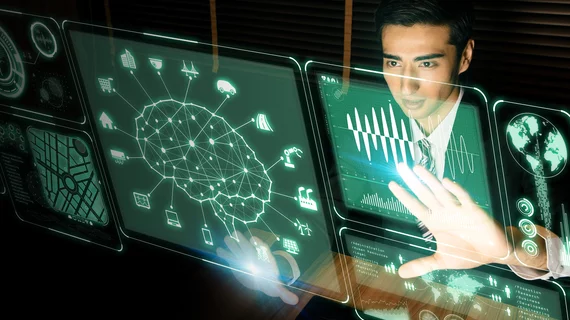Machine learning improves efficiency of cardiac MRI analysis
Machine learning can analyze cardiac MRI scans much faster than human experts, and with similar accuracy, according to a Sept. 24 study published in Circulation: Cardiovascular Imaging.
Typically, a radiologist can interpret a cardiac MRI in about 13 minutes, but study author Charlotte Manisty, MD, PhD, and colleagues found their algorithm performed the task 186 times faster than human experts. The researchers believe their method could save clinicians substantial time.
“Cardiovascular MRI offers unparalleled image quality for assessing heart structure and function; however, current manual analysis remains basic and outdated,” Manisty, with University College London’s Institute for Cardiovascular Science, said in a prepared statement. “Automated machine learning techniques offer the potential to change this and radically improve efficiency, and we look forward to further research that could validate its superiority to human analysis.”
Manisty and colleagues trained their neural network to read the cardiac MRI scans of nearly 600 patients. After testing their model’s precision against an expert and trainee on 110 separate patients from various centers, the researchers reported no difference in accuracy.
More than 150,000 cardiac MRIs are performed in the UK each year, Manisty et al. noted. Based on those figures, the team believes their AI platform could save 54 clinician-days per year at each UK health center.
“Our dataset of patients with a range of heart diseases who received scans enabled us to demonstrate that the greatest sources of measurement error arise from human factors,” the researchers wrote. “This indicates that automated techniques are at least as good as humans, with the potential soon to be ‘super-human’—transforming clinical and research measurement precision.”

